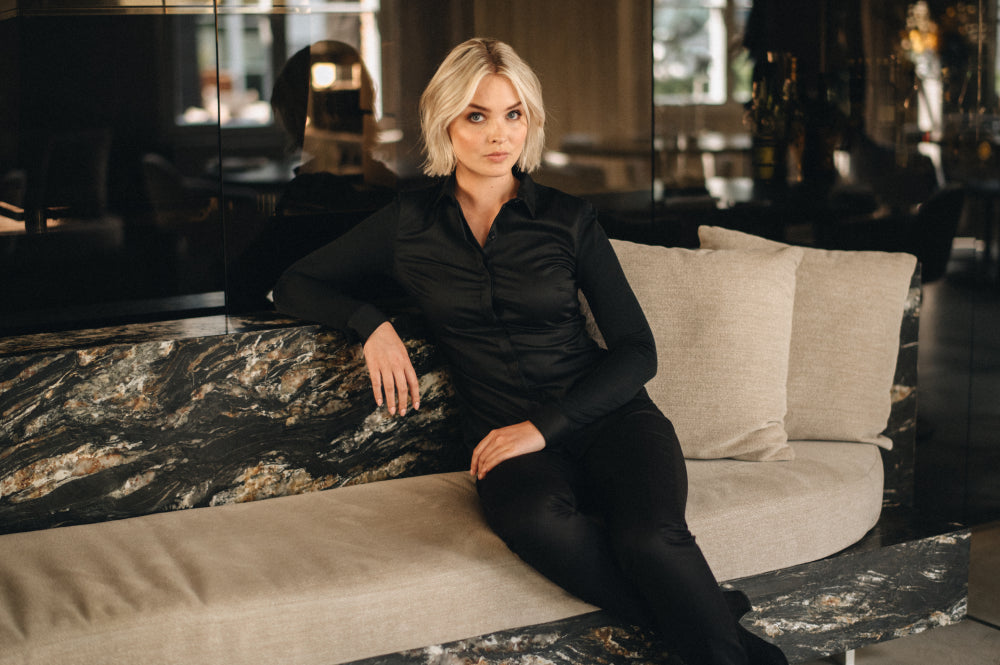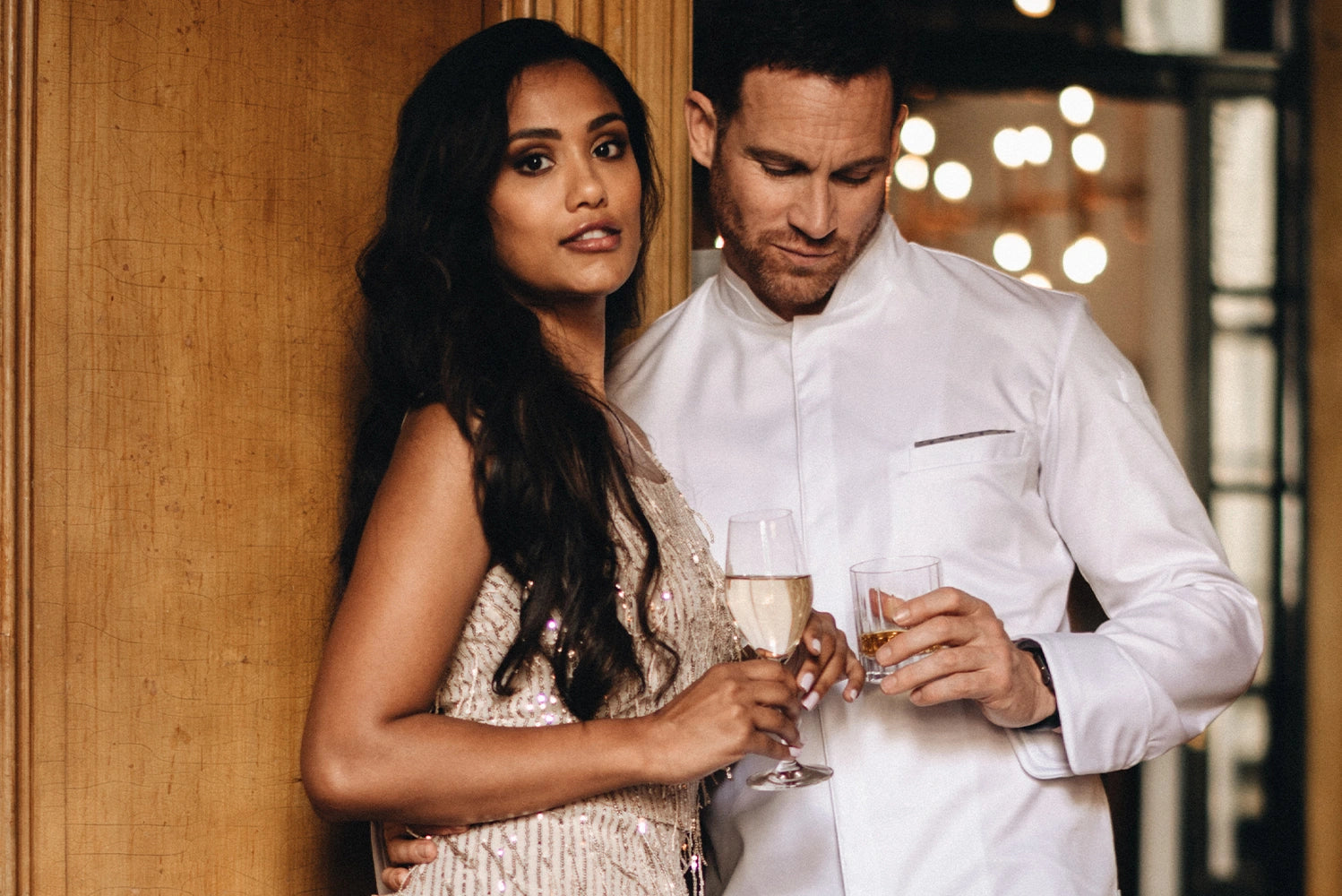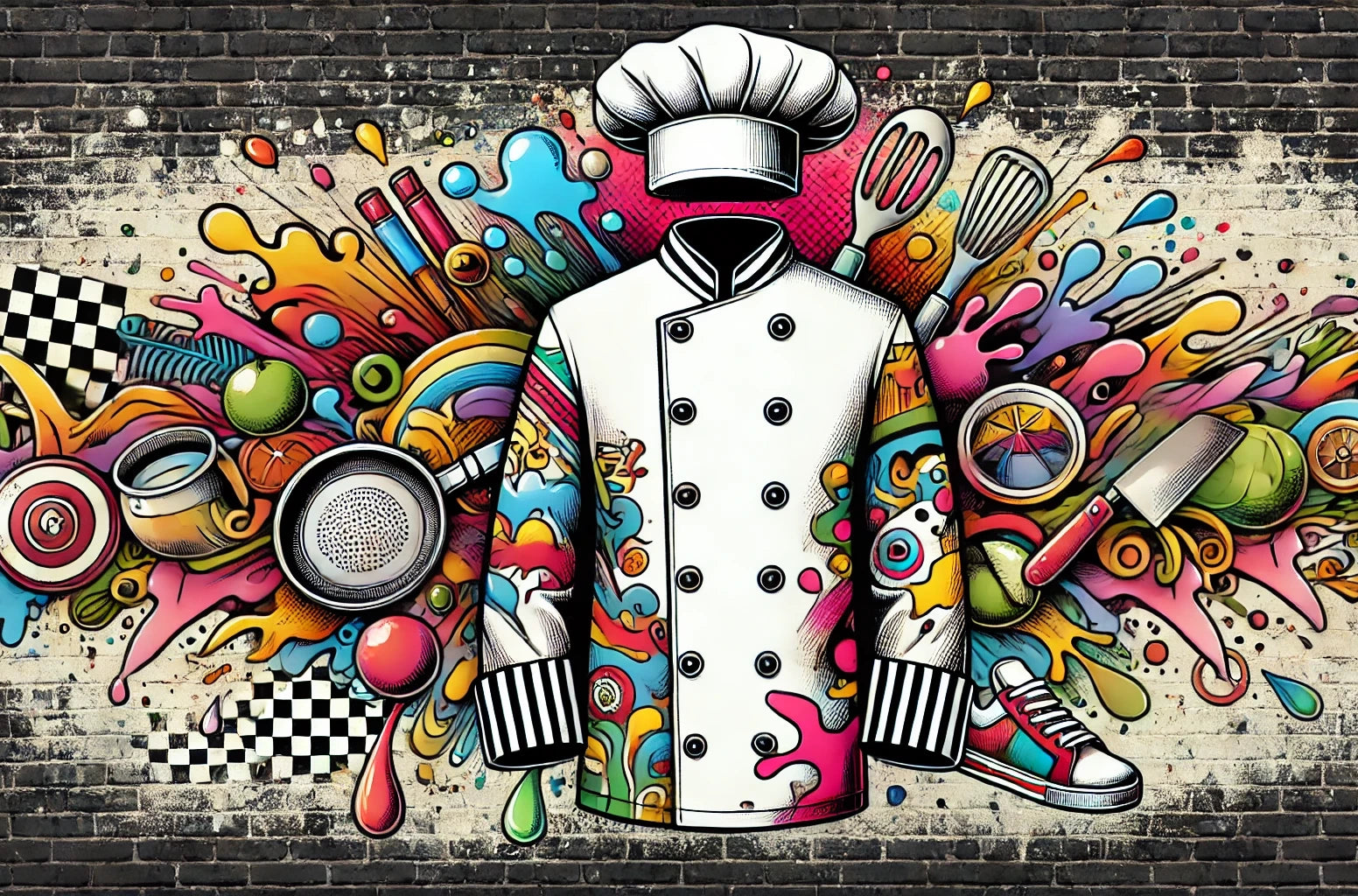About Chef Clothing
20 Most Frequently Asked Questions About Chef Clothing
In the fast-paced world of professional kitchens, the importance of proper chef clothing cannot be overstated. Whether you are a seasoned executive chef or a culinary student just starting out, the right attire is essential for comfort, safety, and professionalism. Chef clothing is more than just a uniform—it's a critical part of the culinary arts that helps protect against burns, spills, and the high temperatures found in a busy kitchen. Choosing the right chef clothing can enhance performance, ensure safety, and provide a professional appearance that reflects the standards of a top-tier kitchen.
Frequently Asked Questions About Chef Clothing
1. What is the best fabric for chef jackets?
The best fabric for chef jackets is typically a blend of cotton and polyester. This combination offers breathability, durability, and ease of movement, which are essential for long hours in a hot kitchen. Cotton provides comfort and absorbency, while polyester adds strength and wrinkle resistance.
2. Why are chef jackets traditionally white?
Chef jackets are traditionally white because the color symbolizes cleanliness and professionalism. White is also practical, as it can be bleached to remove stains, which helps maintain a crisp and clean appearance in the kitchen.
3. What are the key features to look for in chef pants?
Key features of chef pants include comfort, durability, and breathability. Look for pants made from lightweight materials that offer flexibility and moisture-wicking properties. Elastic waistbands, reinforced stitching, and multiple pockets are also beneficial features for added comfort and utility in a busy kitchen environment.
4. Are there different types of chef jackets?
Yes, there are several types of chef jackets, including double-breasted, single-breasted, short-sleeved, and long-sleeved varieties. Each type serves a different purpose, with double-breasted jackets providing extra protection against spills and burns, while short-sleeved jackets offer better ventilation in hot kitchens.
5. What is the purpose of a chef hat?
A chef hat, or toque, serves several purposes: it keeps hair out of the food, absorbs sweat, and signifies a chef's rank in the kitchen. The height of the hat traditionally represents the level of expertise or seniority of the chef.
6. How often should chef clothing be replaced?
Chef clothing should be replaced when it becomes stained, worn out, or damaged. This can vary depending on the frequency of use and the quality of the clothing. High-quality chef clothing may last longer, but it is essential to regularly inspect for signs of wear and replace items as needed to maintain a professional appearance and ensure safety.
7. Can chef clothing be personalized with embroidery?
Yes, many chef clothing items can be personalized with embroidery, such as adding a logo, name, or other text. This adds a professional touch to the uniform and helps with brand identity. Some retailers offer embroidery services as part of their product offerings, allowing chefs to customize their attire to reflect their restaurant or personal style.
8. What are the benefits of wearing an apron in the kitchen?
Wearing an apron provides an additional layer of protection against spills, splashes, and heat. Aprons can help keep chef clothing clean and can be easily removed and replaced throughout the day, ensuring that the chef maintains a clean and professional appearance.
9. What is the difference between a chef coat and a chef jacket?
The terms "chef coat" and "chef jacket" are often used interchangeably. However, a chef coat generally refers to a more formal, heavier garment, while a chef jacket might denote a lighter, less formal version. Both are designed to provide comfort and protection in the kitchen.
10. Why is it important for chef clothing to be flame-resistant?
Flame-resistant clothing is essential in the kitchen to protect chefs from potential burns and injuries caused by open flames, hot surfaces, and splattering oil. Materials that resist catching fire can reduce the risk of burns and provide a safer working environment.
11. What are the best shoes for chefs to wear?
The best shoes for chefs are slip-resistant, supportive, and comfortable for long hours of standing and walking in the kitchen. Shoes made with durable materials, proper arch support, and non-slip soles are ideal for preventing accidents and ensuring comfort throughout a busy shift.
12. How should chef clothing be washed and cared for?
Chef clothing should be washed according to the manufacturer's instructions, typically in cold or warm water to prevent shrinkage and color fading. Using mild detergents and avoiding bleach can help maintain the fabric's integrity. It is also essential to inspect the clothing for stains or damage before washing and to air dry or tumble dry on low heat to extend the lifespan of the garments.
13. Can chef clothing be tailored for a better fit?
Yes, chef clothing can be tailored to provide a better fit. Custom tailoring can enhance comfort and appearance, ensuring that the clothing is neither too tight nor too loose. Some chefs prefer tailored jackets and pants to move freely and maintain a professional look.
14. What is the significance of the different colors in chef clothing?
Different colors in chef clothing can represent various roles in the kitchen or signify a specific culinary school or restaurant brand. While white is traditional for head chefs, other colors like black, blue, or gray may be used for other kitchen staff or to denote specialty roles.
15. Are there eco-friendly options for chef clothing?
Yes, eco-friendly chef clothing options are becoming more popular. These items are made from sustainable materials like organic cotton, recycled polyester, and bamboo. Choosing eco-friendly options helps reduce the environmental impact of the culinary industry and supports sustainable practices.
16. Why are some chef jackets double-breasted?
Chef jackets are double-breasted to provide extra protection against spills and burns. The double layer of fabric can be buttoned over to cover stains and protect the chef from hot liquids or flames. This design also adds a professional appearance to the uniform.
17. What are the most important safety features in chef clothing?
Important safety features in chef clothing include flame resistance, heat insulation, slip-resistant shoes, and durable, breathable fabrics. These features help protect chefs from burns, spills, and other hazards in the kitchen, while also ensuring comfort during long shifts.
18. How can I choose the right size for chef clothing?
Refer to the sizing charts provided by ChefsCotton to find the best fit. It is essential to choose clothing that allows for ease of movement and is not too tight or too loose.
19. Can I wear my chef clothing outside of work?
While it is technically possible to wear chef clothing outside of work, it is generally not recommended due to hygiene and professionalism. Chef clothing is designed to be worn in the kitchen and may carry food odors or stains, which might not be suitable for outside environments.
20. What is the history of chef clothing?
The history of chef clothing dates back to the 19th century with the development of the traditional white chef's uniform by French chef Marie-Antoine Carême. The uniform was designed to symbolize professionalism and cleanliness in the kitchen, and the toque was introduced to signify a chef's rank. Over time, chef clothing has evolved to include modern materials and designs that offer greater comfort and functionality.
Choosing the right chef clothing is crucial for safety, comfort, and professionalism in the kitchen. From the fabric of the jackets to the fit of the pants, every element plays a vital role in a chef’s daily work life. By understanding the key features and benefits of different types of chef attire, you can make informed decisions that enhance your performance and maintain a professional appearance. Explore our collection of high-quality chef clothing options to find the perfect fit for your needs. If you have more questions or need further assistance, feel free to leave a comment or contact us directly.



